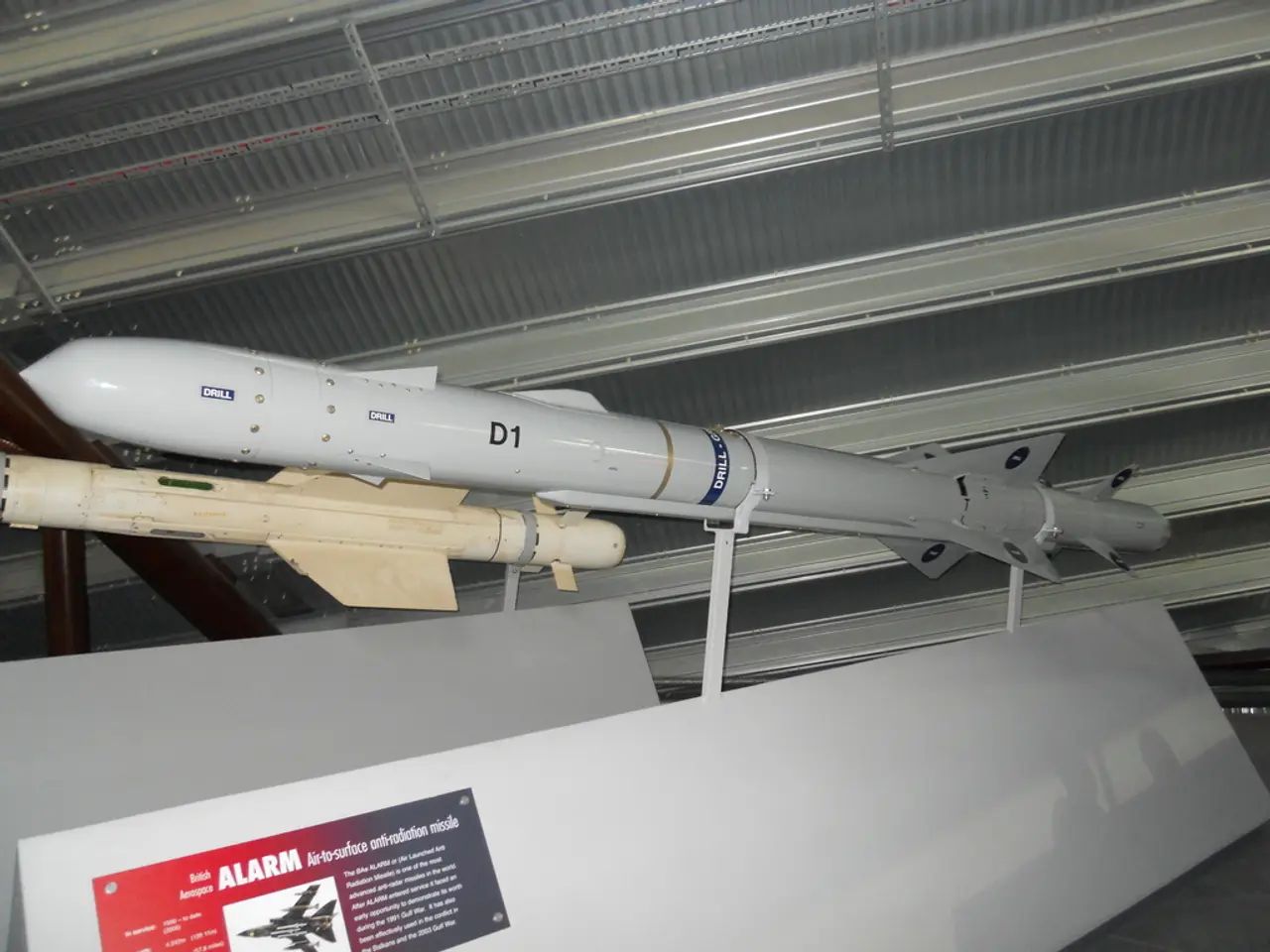Philippines to acquire second-hand warships from Japan, intended to counteract China's territorial ambitions, according to news reports.
In a strategic move aimed at bolstering regional security and countering China's assertive actions in the South China Sea and East China Sea, Japan has agreed to transfer six decommissioned Abukuma-class destroyer escorts to the Philippine Navy. These warships, which have served the Japan Maritime Self-Defense Force (JMSDF) for over three decades, will be handed over in June 2025 [2][3][5].
The Abukuma-class destroyer escorts are equipped with advanced anti-submarine warfare systems, anti-ship missiles, and sophisticated sensors, making them formidable vessels even in their retirement. This transfer is expected to significantly enhance the Philippines' naval capabilities, enabling the country to better patrol and secure contested maritime areas [2][3].
The export deal is part of Japan's revised military export policies, a milestone that allows Japan to strengthen its regional alliances without violating its pacifist constitution. By classifying the transfer as a joint development project, Japan can clear military equipment export restrictions [1].
This strategic alignment among the Philippines, Japan, and the United States has been further reinforced by the 2024 Reciprocal Access Agreement (RAA). The RAA facilitates easier deployment and joint exercises among the forces of the three countries, creating a network of deterrence and security cooperation in the Indo-Pacific [1][2].
Bilateral military collaboration between Japan and the Philippines extends beyond hardware transfers. Joint maritime exercises, radar aid packages from Japan to the Philippines, and high-level strategic dialogues focused on maritime security and defense have become regular occurrences [1][4][5]. These collaborative efforts are not limited to military drills but also encompass humanitarian assistance, disaster response, and operationalizing mutual defense frameworks, underscoring the comprehensive nature of the partnership [1][4].
It is important to note that neither the Japanese defense ministry, the Philippine military, nor China's foreign ministry has commented on the report at the time of this article. The Philippine Navy plans to send a delegation of experts to conduct an in-depth assessment of the ships, with the outcome guiding further deliberations on the potential acquisition [1][3].
The transfer of these destroyers aligns with the Philippine Navy's modernization efforts, as the country currently only has frigates and corvettes, which are smaller and lighter-armed vessels compared to destroyers [1]. With the addition of these six Abukuma-class destroyers, the Philippine Navy will be better equipped to face the challenges posed by Beijing's assertive moves in the region.
References: [1] The Diplomat. (2025, June 1). Japan to Transfer Decommissioned Destroyers to the Philippine Navy. https://thediplomat.com/2025/06/japan-to-transfer-decommissioned-destroyers-to-the-philippine-navy/ [2] The Japan Times. (2025, June 1). Japan to Transfer Decommissioned Destroyers to the Philippine Navy. https://www.japantimes.co.jp/news/2025/06/01/national/japan-philippines-destroyers/ [3] Reuters. (2025, June 1). Japan to Transfer Decommissioned Destroyers to the Philippine Navy. https://www.reuters.com/world/asia-pacific/japan-transfer-decommissioned-destroyers-philippine-navy-2025-06-01/ [4] The Philippine Star. (2025, June 1). Japan, Philippines Strengthen Military Ties with Joint Exercises, Radar Aid Packages. https://www.philstar.com/headlines/2025/06/01/2148695/japan-philippines-strengthen-military-ties-joint-exercises-radar-aid-packages [5] Bloomberg. (2025, June 1). Japan's Military Export Deal with the Philippines: A Game-Changer in the South China Sea. https://www.bloomberg.com/news/articles/2025-06-01/japan-s-military-export-deal-with-the-philippines-a-game-changer-in-the-south-china-sea
The transfer of decommissioned Abukuma-class destroyer escorts from Japan to the Philippine Navy is anticipated to strengthen national politics and general news discussions, as this move better equips the Philippines to tackle war-and-conflicts in the South China Sea. This strategic alliance between Japan and the Philippines, supported by joint military exercises and hardware transfers, is a response to China's assertive actions in the region and underscores the importance of regional politics and security in East Asia.






